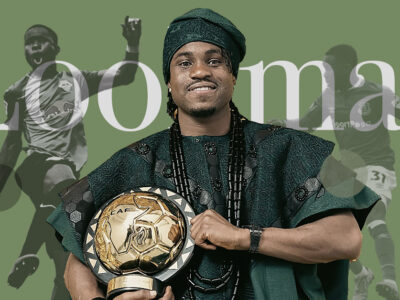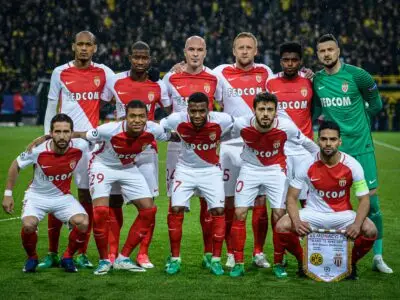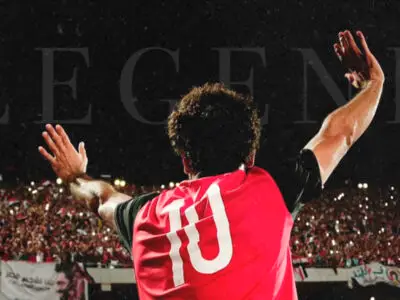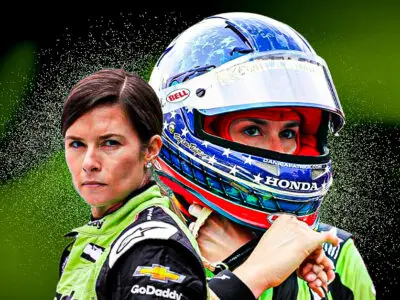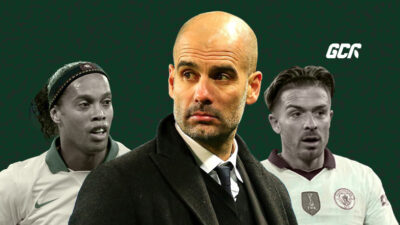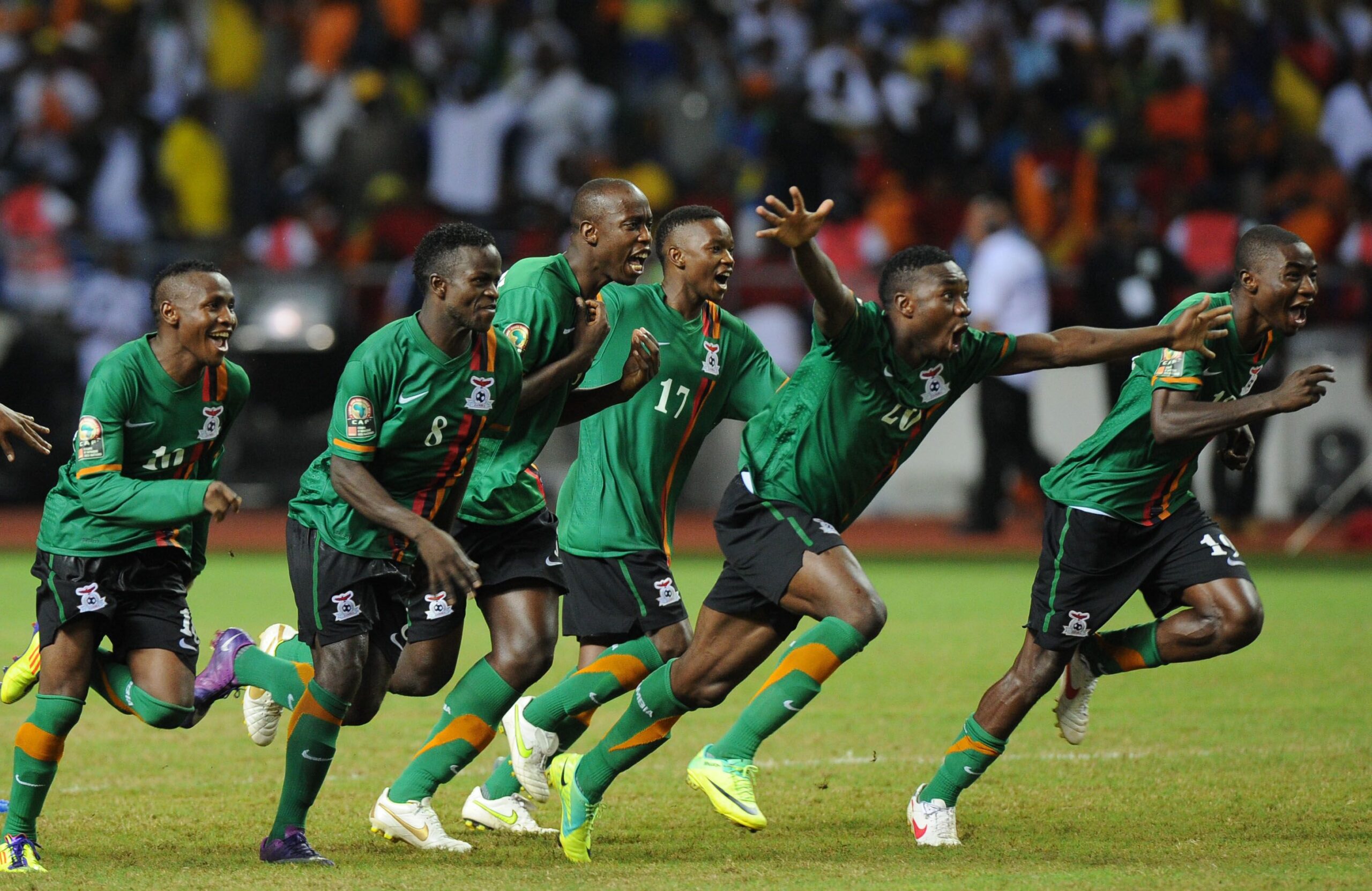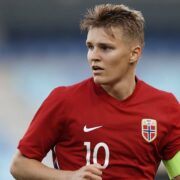The game has overtaken the special one, and I can’t keep hanging on to the nostalgia of a time that no longer exists.
It hurts, but I’m moving on from Mourinho. Before Chelsea and Real Madrid fans come for my head, hear me out first.
It’s not often that managers hug the spotlight, but with Jose Mourinho, being in the media’s eye is a casual Tuesday.
From his on-the-field success to the touchline antics and, sometimes, blatant disregard for authority, Jose Mourinho has genuinely left his imprint on the game.
But given the two-time Champions League winner’s most recent run of managerial form, it’s time to ask: “Is Mourinho done?”
If we were to put him in the same class as Pep Guardiola and Jurgen Klopp, he would pack only a pillow punch.
Still think I’m out of my mind? Let me prove you wrong.
The ‘Special One’ used to be really special
Under the esteemed Sir Bobby Robson at Sporting Lisbon, Jose translated English to Portuguese while laying the foundations for an illustrious career in coaching.
Mourinho later followed Sir Bobby to Barcelona, where he managed to work with Pep Guardiola, who was a player at the time.
Stepping out of Sir Bobby’s shadow, Mourinho dipped his foot into the managerial waters briefly at Benfica and União de Leiria.
But he came into his own at Porto, leading them to an improbable Champions League win, defeating Manchester United along the way.
He was no longer Sir Bobby Robson’s sidekick. Now, he distinguished himself as a potential world-beater.
"I think I am the special one!"
— Sky Sports Premier League (@SkySportsPL) November 20, 2019
🏆 Porto
🏆 Chelsea
🏆 Inter Milan
🏆 Real Madrid
🏆 Manchester United
❔ Tottenham Hotspur
Will Jose Mourinho be a success at Spurs?
More: https://t.co/uMfT043pep pic.twitter.com/jHQcGX3qJ1
Mourinho arrived at Chelsea following his Porto stint. He then announced himself in the famous “I am the Special One” interview.
England took notice.
The man fearlessly went toe-to-toe with Arsene Wenger and Sir Alex Ferguson, turning Stamford Bridge into a fortress and leaving a trail of shattered egos and records in his wake.
His record of conceding 15 goals in a Premier League season is right up there with Messi’s 91-goal haul in terms of replicability. Okay, not quite, but you get the point.
Then came Inter. How Mourinho managed to defeat European giants with a team of misfits and ‘old men’ such as Zanetti, Milito, Eto’o, and Chivu defies logic.
📅 OTD in 2010, we witnessed absolute peak José Mourinho 🤣
— Football on TNT Sports (@footballontnt) April 28, 2021
He lapped up the celebrations as Inter did a number on Barcelona at the Nou Camp 🔵⚫️pic.twitter.com/JGnCrDY4je
He then beat Barcelona and celebrated at the center of the pitch to the ire of Victor Valdes and the entire Camp Nou. The world took notice.
Going head-to-head with Guardiola
Mourinho’s move to Real Madrid was a response to Pep Guardiola’s indomitable Barcelona. If anyone could stop their dominance, it was Jose Mourinho.
After getting battered initially, Mourinho decided to unleash the dark arts. With Pepe and Ramos at the back, Mourinho made El Classico the must-watch game in football.
Fights, hard fouls, and scintillating football marked every Real Madrid vs. Barcelona game during that era.
Mourinho: "In derbies, I repeat to my players: emotional control"
— UberArsenal (@UberAFC) September 19, 2015
– Pokes Villanova's eye
– Steps on Cesc's ankle pic.twitter.com/LcCg95eRVV
The most famous one was when he poked Tito Vilanova in the eye during a scuffle in the technical area.
Despite not winning the Champions League with Madrid, he managed to wrestle the league away from Barca with a record 100 points.
The post-Madrid decline
After leaving Madrid, Mourinho made a triumphant return to Chelsea, helping them win a league title. At that time, no one would have thought this could be his last major trophy amongst the European elites.
Stints at Manchester United and Tottenham Hotspur followed. Although Mourinho won a few trophies at United, he was caught up in the FC Hollywood circus.
At Tottenham, we got used to Mourinho’s rants rather than exciting football. And to make matters worse, this coincided with Pep’s dominance over England. Mourinho had become “one of the bottle.”
It's been exactly two years since THAT Jose Mourinho 'respect' rant 🍿
— GOAL (@goal) August 27, 2020
He never fails to entertain 🤣 pic.twitter.com/znmO4HlR6t
Fast-forward to his time at Roma, Mourinho found himself in a new chapter in his storied career. Tasked with reviving a fallen giant, the Special One brought experience and a burning desire to restore the Italian giant to its former glory.
While these have worked in some capacity with a Conference League trophy and Europa League final, he was unable to take Roma to the top of the Serie A.
Although his time with I Giallorossi was not a failure, it was a far cry from the spell-binding displays we are used to witnessing with teams under Jose. In many ways, the man has lost his magic touch.
The 3rd-season curse is real
To grasp why the Mourinho I see today doesn’t quite radiate the same aura of dominance he did two decades ago, let’s consider an external factor — the infamous 3rd-season curse.
Apart from Klopp, Guardiola, and a handful of other managers, staying in a coaching job for more than two years is becoming increasingly difficult.
In England, the average club manager lasted only 1.23 years before getting swapped. The number rises to 1.8 for the Premier League.
The relentless pursuit of victory, epitomized by figures like Roman Abramovich, leaves little tolerance for managers faltering into their third season.
This trend has profoundly impacted Mourinho.
Despite winning the Premier League and League Cups during his second stint at Chelsea, he never lasted past two seasons.
Mourinho’s tenure at Manchester United saw initial success, clinching the Europa League, League Cup, and Community Shield.
Community Shield ✅
— BBC Sport (@BBCSport) August 8, 2017
EFL Cup ✅
Europa League ✅
Jose Mourinho is chasing his 4th trophy as Man Utd boss later.
➡️https://t.co/yOxNQCKcG5 pic.twitter.com/PTYfwxeNWP
Yet, by his third season, discontent brewed between the fans and a manager who had given them three reasons to celebrate just a couple of seasons ago, and Mourinho left with Manchester United languishing in 6th place.
The curse followed him to Italy, with Jose Mourinho falling out of favor in his third season despite guiding the club to lift the first-ever Europa Conference League trophy.
𝟳 𝗗𝗔𝗬𝗦 𝗔𝗚𝗢: Roma became the first Europa Conference League winners… 🤩#UECLfinal pic.twitter.com/w1uFIn5EOc
— UEFA Europa Conference League (@europacnfleague) June 1, 2022
But, shortly before he parted ways with the team, Roma was sitting in its lowest position in over half a decade and was four points below the European qualification spot.
So, as much as modern managers have less time to get things right, Mourinho’s recurrent struggles in his third season suggest a peculiar jinx haunting his managerial ventures.
But why?
His man management is terrible
When delving into Mourinho’s managerial style, a glaring flaw emerges — his consistent struggle with man management. At every club, Mourinho seems to eventually lose the dressing room, fostering discord among his players.
His bullish tactics used to work perfectly in the late 2000s and early 2010s, but it also had to do with the caliber of players around then. Back then, classic Jose Mourinho statements like, “I am Jose Mourinho, and I don’t change. I arrive with all my qualities and my defects.” would have worked.
Nowadays, footballers have more social influence, bigger egos, and prefer to have more say in how, where, and when they play. Mourinho’s big personality can often make these factors difficult for the players to control, leading to a clash of interests and even outright discord.
High-profile conflicts with star players like Pogba and Shaw at United and Casillas at Real Madrid have become emblematic of his tenure.
They showcase his inability to maintain positive relationships within the squad. These rifts not only disrupt team cohesion but also contribute to a toxic atmosphere that undermines performance on the pitch.
And as fans, watching this play out feels like someone is airing your family’s laundry in public.
He doesn’t work well with young players
In addition to his difficulties in managing established stars, Mourinho courts controversy with his approach to young players.
The Portuguese gaffer often found himself out of tune with the youth, failing to harmonize with the promise of budding talents.
At Real Madrid, Mourinho’s tenure saw him butting heads with a young Raphael Varane. Yes, it was clear that Varane had prodigious talents. But Mourinho’s reluctance to entrust the young defender with consistent opportunities left many scratching their heads.

For Mourinho, the end has always justified the means. With comments like, “I hate to speak about individuals. Players don’t win you trophies, teams win trophies, squads win trophies.” it’s easy to see why young players did not feel welcome in his team.
Even at Chelsea, clashes with prospects like Kevin De Bruyne and Romelu Lukaku marked a dissonant note in Mourinho’s tune.
Both players, now seasoned veterans, found themselves on the fringes under Mourinho, their paths diverging from the grand narrative Mourinho sought to weave.
Ironically, years later, Roma’s Mourinho signed an established Lukaku from Chelsea — further proving that, like a chef, the Portuguese simply prefers his players seasoned to perfection.
Mourinho’s playing style is outdated
In the realm of modern football, the Mourinho playbook belongs to a bygone era. Once hailed as the master tactician of his time, Mourinho’s strategies have struggled to keep pace with the ever-evolving dynamics of the beautiful game.
His methods thrived in an era where he inherited well-established squads boasting seasoned campaigners, but the latter half of his career has been mired in challenges.
From his tenure at Manchester United to his stints at Tottenham Hotspur and Roma, Mourinho has grappled with clubs in disarray.
More often than not, these are clubs desperate for his magic touch to resurrect their fortunes. We have seen that that strategy just doesn’t work long-term anymore.
It's 11 years since @FCPorto boss José Mourinho's unforgettable celebration at Old Trafford: http://t.co/brqIkRb92A pic.twitter.com/SdSvLGsoOy
— UEFA Champions League (@ChampionsLeague) March 9, 2015
Fans no longer possess the patience to endure his trademark defensive style, especially in an era where the pace and style of play demand proactive, attacking football.
Even objectively inferior teams now know how to play against a Mourinho-led squad because of the man’s tactical rigidity.
And from the business point of view, many clubs won’t see his style as sustainable. Mourinho’s love for veteran defenders and deft wingers can easily dent a hole in the coffers of any club that isn’t Chelsea, PSG, or Real Madrid.
And considering that those players don’t come in with the flair and instant success fans and critics have come to associate with big-money signings, it’s easy to see why many club recruiters will be wary of putting him at the helm of affairs.
Is Mourinho still elite?
Having now left Roma, the question of whether Jose Mourinho still holds sway is more contentious than ever.
His direct, confrontational style has been his hallmark and Achilles’ heel throughout his illustrious career. Familiar patterns of tension have marked his departures, echoing previous exits.
The question is whether the footballing elite will stick with Mourinho’s confrontational approach or veer toward younger, more progressive coaches.
The vintage allure of Mourinho’s abrasive style now faces serious competition from the fast-paced style of peers like Guardiola and Klopp. And these guys, despite their affable personas, are equally ruthless in their decision-making.
That game had Jose Mourinho at the edge of his seat 🪑
— Football on TNT Sports (@footballontnt) November 5, 2023
He shares a moment with his match winner Romelu Lukaku 🥹 pic.twitter.com/VheuC55cXQ
While Mourinho’s approach may need to evolve to accommodate the modern player’s sensibilities, you may think that his unyielding demeanor remains a testament to his results-driven ethos.
One thing is clear — Jose Mourinho is done as an elite manager. If he balances his demand for excellence with an environment conducive to player development, the Special One may return to the top of the food chain.
But right now, the reality is that he used to be the Special One.
What’s next for Jose Mourinho?
As the curtain falls on another chapter of Jose Mourinho’s story, I ask the question: What lies ahead for the Special One?
With doors closing at some of Europe’s top clubs, Mourinho’s next move is uncertain. But if you think about it, his future is ripe with possibilities that are not apparent at first glance.
Look at the realm of punditry, where Mourinho has shown on several occasions that he can dominate. His charisma, pride, and intricate knowledge of the game will make him second to none in that world.
Sky Sports have the right to all 3 European competitions, so to announce it they chose the only person who has won all of them.
— IM🇵🇹 (@Iconic_Mourinho) September 4, 2023
"I have collected all of these, now these masterpieces are for all of you."pic.twitter.com/MVhMmhZC6E
Alternatively, the allure of national management may tempt Mourinho, offering the chance to leave his indelible mark on the international stage. After all, he already had offers to manage the Portuguese national team.
He could even decide to go beyond Europe, as the allure of coaching in exotic locales may appeal to Mourinho’s adventurous spirit.
Yet, as speculation swirls, I cannot help but feel nostalgic for an era when Mourinho reigned supreme, his quotes making it into meme Halls of Fame while his deeds commanded attention globally.
Stormzy getting Jose Mourinho to feature in his new music video will go down in UK rap history pic.twitter.com/C1ZCKp8ko5
— UK Rap Daily (@UKRapDaily) September 23, 2022
Maybe he’ll drop a full album with Stormzy.
Whatever the future holds, one thing remains certain: the streets will forever remember Mourinho as the Special One.
Who wrote this?
Precious is a lover of football, a peddler of banter, the master of all sports, and the practitioner of none. He's spent over 15 years discussing football in pubs and schoolyards.











